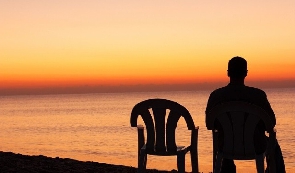You may not have thought through this closely yet, but did you know that one of the biggest silent killers in life is loneliness? In fact, for the most part, loneliness is not only quietly snuffing out people’s lives, it is a beast that has continued to rob many of their livelihoods.
This silent, deadly killer is said to be as dangerous as smoking 15 cigarettes a day and as lethal as consuming 6 alcoholic drinks a day, and, loneliness and isolation have similar effects on health as being obese.
Experts also say that loneliness is more harmful than not exercising. So, it is clear that this killer, dressed in silence, is a dreadful matter that needs immediate concerns.
Data available on socialself.com also shows that in the United States, the Gen Z is the loneliest age group, with 87% of them saying it is difficult to make new friends because they are shy.
A new study adds that when people don’t socialise with friends or families, their risk of death increases by 39%, so does the risk of death from heart diseases by 53%. For those who also live alone, they have a 77% high risk of early death, and even higher risk of dying through heart disease or stroke.
What loneliness is not the same as
Loneliness is not the same as being alone. Loneliness is not the same as social isolation either.
Loneliness is a subjective feeling. People can have a lot of contacts, big families, many friends, and still feel lonely. But lonely is not all bad. In small doses, it is like hunger or thirst, which is a healthy sign – a sign that you are missing something, but when that is prolonged over time, it can be deadly because the human brain sees loneliness as a threat.
What loneliness can lead to
When lonely, you see people as potential threats and not friends. This creates a vicious cycle which makes you feel loneliness, making you lonelier, leading to strokes and heart disease, even dementia, inflammation, poor immunity, depression, personality disorders, and suicide.
The world over, 33% of adults are lonely, with the highest numbers being in Brazil, followed by Turkey, India, Saudi Arabia, Italy, and South Africa.
Loneliness is actually said to kill far more people in the West each year than terrorists and murderers.
Myths about loneliness
Loneliness is allowed to loom large simply because of its absurdity. It is a real and strange reality.
What know what it is, we know how to cure it, it also costs very little, yet, it is difficult to beat because we live in a paradox of the world. Today, the world is more connected than ever through phones, but this is making us more isolated.
Loneliness has nearly doubled between 2012 and 2018, which coincides with the explosion of social media use, putting an entire generation at risk.
Steps to tackle loneliness
Time with screens cannot substitute time with humans. The steps to tackle loneliness are not grand or hi-tech.
One of the best strategies is to simply be old-school: eat meals together, hold parties, hang out to eat something together, or play a sport, get to known your neighbour. It could be anything you like; just do it at least once in a month.
The following are some of the processes you can manage your loneliness too:
• If you've felt lonely for a long time, it might feel overwhelming to start opening up to people. Trying to meet new people may also worry you. But you don't need to rush into anything.
• To start small, try and make conversations with people you come across in your day-to-day life. For example, this could be saying hello to a cashier in your local shop. Or making conversation with a neighbour.
• Some people find it useful to be in environments where there are lots of people around. For example, coffee shops, libraries or shopping centres. Feeling the presence of other people may help with some feelings of loneliness.
• It may help to establish a routine, where you go to the same places at the same time. You might start to recognise people in these places, which may lead to forming connections.
• Try thinking about how your interests could help you connect with other people. For example, if you like reading, you could join an online forum for conversations about books. You could also spend some time in a local library before joining a book club. Focus on environments where you feel safe and try not to put too much pressure on yourself.
• You could try an online activity where other people attend but you're not expected to interact with them. For example, a drawing class or another kind of creative workshop. You could ask whoever runs the sessions if you can just watch at first, rather than taking part.
The writer, Ebenezer Denzel Amanor, writes for www.surveillanceghana.com
Opinions of Tuesday, 14 November 2023
Columnist: Ebenezer Denzel Amanor















